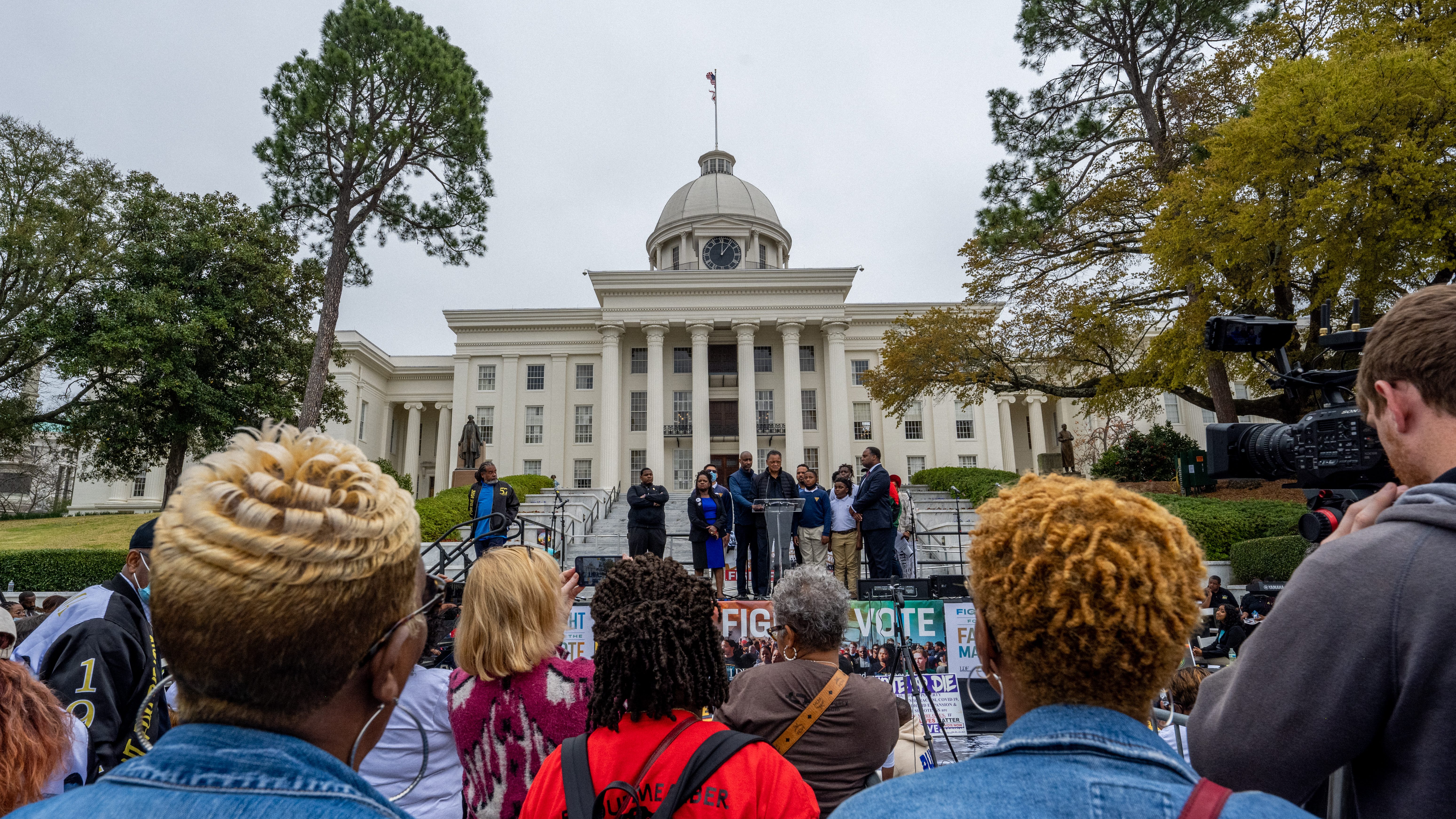Plaintiffs slam Alabama Republicans for defying court order with map limiting Black voters
“It seems like Republicans don't want to deal with the rule of law unless it's in their favor," voting rights activist Melanie Campbell told theGrio.
The plaintiffs in a redistricting case in Alabama say state lawmakers are defying a Supreme Court ruling after passing a redrawn congressional map that fails to give Black voters a second majority-Black district in compliance with the Voting Rights Act, and reduces the population of Black voters in another.
Stuart Naifeh, an attorney with the Legal Defense Fund working on the team representing plaintiffs in the federal case, told theGrio that the proposed map is “obviously not a majority-Black district” and “would not comply with the district court’s order.”
“It is actually majority white measured by voting-age population, according to their own data,” said Naifeh.

In June, the Supreme Court ruled that Republican legislators would have to comply with a federal district court’s order to reapportion its statewide map to ensure that it gives Alabama’s 27% Black population a second voting-age majority district or something close to it. The plaintiffs in the case, comprised of several Black voters in Alabama, argued the existing map violated Section 2 of the Voting Rights Act, which grants equal opportunity for Black voters to elect a candidate of choice.
The map proposed by the Alabama House of Representatives this week would increase the Black voting population in Alabama’s 2nd Congressional District from 30% to 42%, while the Senate map would increase it to only 38%.
Critics of the new map also take issue with the 7th Congressional District, the state’s lone majority-Black district, having its Black population reduced by 4%. That district is represented by Alabama’s only Black congressional member, Rep. Terri Sewell, a Democrat. Sewell declined theGrio’s comment on the proposed map.
A final vote is expected on Friday.
Letetia Jackson, a public policy advocate and one of the plaintiffs in the case, said Republican legislators “disrespected and ignored the court’s ruling.” She told theGrio, “We all know that is not an opportunity for Black voters to elect their representative based on Alabama’s own history of polarized voting.”
Melanie Campbell, president and CEO of the National Coalition for Black Civic Participation, told theGrio she finds it interesting that Republican legislators ironically “ignored the highest court in the land that has appointees that were appointed by Donald Trump.”
She added, “It seems like Republicans don’t want to deal with the rule of law unless it’s in their favor.”

Jackson also slammed the committee process for how the congressional maps were approved. She said it was done “in secret” away from Black legislators “representing the very constituency fighting to be heard and represented in Alabama on the federal level.”
She lamented that Republican lawmakers did not share information about the new map with the public, allowing constituents to give their input. Jackson said the map was also “absent any data to support what they were presenting as evidence that their map was a good map.”
Once Republicans officially file their new proposed map with the district court, Naifeh told theGrio that the plaintiffs in the case would have a week to file a brief explaining whether they object to it or think it resolves the case. Naifeh made clear that the plaintiffs in the case oppose the proposed maps.
At a hearing scheduled for Aug. 14, the court will hear evidence from the plaintiffs to show the map doesn’t satisfy the court order to create a second district where Black voters are a majority or close to it.

Naifeh said “sometime after that,” the court will decide if it’s going to reject the legislature’s map or “create a process for adopting its own.”
If the district court rules in favor of the Republican legislature’s new map, the attorney told theGrio that Black voters in Alabama would “continue to suffer the same harm.”
“They can’t elect candidates of choice except in the one district that has been historically … the majority Black district in Alabama,” he noted.
Whatever the outcome in the district court, Naifeh anticipates there will be another appeal to the Supreme Court.
“I would suspect that the Supreme Court won’t be interested in hearing this case further,” he said, “But you never know.”

Gerren Keith Gaynor is a White House Correspondent and the Managing Editor of Politics at theGrio. He is based in Washington, D.C.
TheGrio is FREE on your TV via Apple TV, Amazon Fire, Roku and Android TV. Also, please download theGrio mobile apps today!

